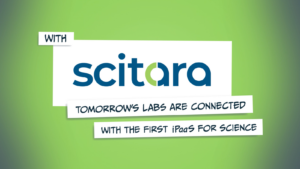In the fast-paced world of scientific research, development and manufacturing, time is of the essence. Laboratories are constantly seeking ways to streamline their processes and expedite project completion times. One transformative solution gaining momentum in lab digital transformation is lab data integration and automation platforms. This blog on people benefits is part of a five-part series that also looks at the department benefits, organization benefits, financial benefits and customer benefits of implementing these platforms.
People Benefits
Lab data and integration platforms offer significant benefits to the people working in an organization. By eliminating the need for manual data management, people can spend more time on value added work, better utilizing their unique skill sets, which leads to higher satisfaction. Furthermore, by making data more easily accessible to everyone in the organization, lab data integration platforms lead to more effective collaboration.
- More Time for Value Added Work: One of the most significant benefits individuals can experience with automation is the liberation of time. Manual data management processes often consume a substantial portion of researchers’ and scientists’ time. With automation through data integration, individuals can redirect their efforts from mundane, repetitive tasks to more value-added work. This newfound time allows them to focus on the core aspects of their research, leading to increased productivity and more meaningful contributions to projects.
- Better Utilization of Skill Sets: Data integration platforms empower individuals to leverage their skills more effectively. Scientists and researchers are equipped with advanced tools and technologies that allow them to focus on the analytical and creative aspects of their work. Automation of routine tasks ensures that individuals can apply their expertise to areas that truly require human intelligence, maximizing the utilization of their skills and knowledge. This shift towards more strategic and impactful work enhances job roles and career development.
- Greater Job Satisfaction: As individuals witness the positive impact of data integration on their daily work, job satisfaction naturally increases. The frustration and challenges associated with manual data management diminish, and individuals find themselves more engaged in meaningful and intellectually stimulating tasks. The ability to contribute to projects with efficiency and accuracy boosts morale and job satisfaction, creating a positive work atmosphere that promotes professional growth and fulfillment.
- More Effective Collaboration: Collaboration is a cornerstone of scientific research, and data integration platforms play a pivotal role in fostering effective collaboration. Individuals can seamlessly share and access integrated datasets, breaking down communication barriers across teams and departments. Real-time collaboration becomes a reality, enabling researchers to work cohesively on projects regardless of geographical locations. This enhanced collaboration not only accelerates project timelines but also creates a more engaging and interactive work environment.
The adoption of data integration platforms significantly impacts the experiences of individuals within a scientific laboratory. From providing more time for value-added work to fostering effective collaboration and increasing job satisfaction, these platforms empower individuals to thrive in their roles. As organizations prioritize the well-being and professional growth of their members, the integration of data platforms becomes a key enabler of a dynamic and rewarding work environment.
